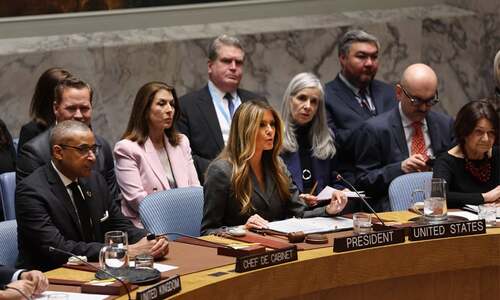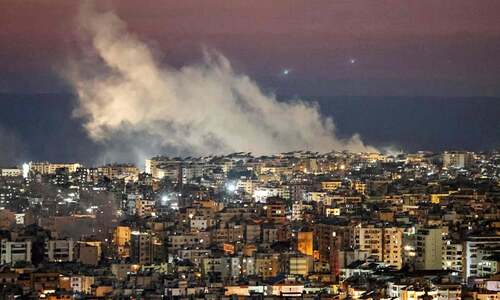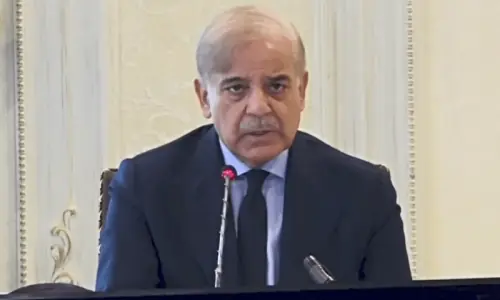ARBIL Blending traditional folk music with pop beats, sultry gyrations and plunging necklines, the musical phenomenon that is Dashni Murad is shaking Iraq's conservative northern Kurdistan region, AFP reported.
In a part of the world where many women are expected to be demure, the lithe and long-haired 23-year-old has been dubbed the 'Shakira of Kurdistan' for her suggestive dance moves modelled on the Colombian-Lebanese star Shakira.
With one album under her belt and another in the pipeline, Murad has become a household name across Kurdistan, which has enjoyed autonomy from the rest of Iraq, as well as relative peace, since the early 1990s.
'I admire Shakira a lot, I consider her my ideal. I've been following her and her songs since I was a kid,' said Murad, a fluent English and Dutch speaker who grew up in the Netherlands after her family left Kurdistan when she was eight, but now lives in the region.
'Even though I've benefited from Shakira artistically, I'm trying to make these moves my own,' she told AFP in the regional capital Arbil.
And it is 'these moves' that are causing such a stir.
Many Kurds are secular, with a homeland stretching across parts of Iraq, Turkey, Iran and Syria but also having a vast global diaspora. But much of the region is deeply conservative, and so-called honour killings of women who overstep the tight boundaries set by their menfolk remain commonplace.
Just like the original Shakira — whose moves draw inspiration from Middle Eastern belly dancing — Murad's dancing is nothing if not forthright.
Her film clips, mixed in Kurdistan and popular on local satellite television and on video sharing website YouTube, show the scantily clad singer gyrating everywhere from beaches and nightclubs to stacks of hay.
The young need a new style
Many young Kurds love it, but others see her performances as an affront to the culture of predominantly Muslim Kurdistan.
'I think it's a strange way of performing. It's not suitable for our community,' 34-year-old civil servant Rasul Faqii said.
'Maybe it's because she grew up in the West. It's okay for Europeans, but not for us. This will destroy the basis of the community. We don't want our young people growing up like this,' he added.
Susan Aref, the head of Kurdistan's Women's Empowerment Organisation, said Murad's suggestive moves were a step backwards for the status of local women.
'We are against these sexy movements and using women's bodies to attract attention. It goes against our policy to defend the rights and liberation of women,' Aref said. 'We don't want to free women in order to free their bodies.'
But Murad insists she is helping move the Kurdish culture forward, drawing on the region's language and the words of its great master poets for lyrical inspiration.
'I choose to do this because I think the people, especially the young, need a new, positive artistic style to break the chains,' she said.
Murad is not an entirely new face in Kurdistan. She already made a name for herself between 2005 and 2007 as the bold and outspoken presenter of a popular Kurdish television show called 'No Control,' beamed from Europe, in which she interviewed ordinary people.
Although Kurdistan is seen as socially conservative, it receives a plethora of international television channels via satellite. There are, however, only a few local channels in the Kurdish language.
On top of recording and concert performances, Murad also keeps up the interviews on her own programme, 'The Dashni Show.' And her bold approach is proving popular, particularly among women who make up most of her television audience.
'Dashni's performances take a lot of courage. No Kurdish artists have done this before. It's a revolution for Kurdish songs,' 36-year-old journalist Hawzin Hama said.
'Before, no woman in our community could talk about her love for a boy or talk frankly about love, but Dashni says it with courage.'





























